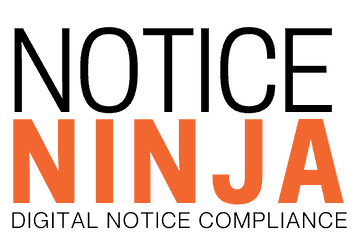Yes, NOTICENINJA is corporate tax notice compliance software that automates key workflows including notice assignments. The platform employs a rule-based system that can manage multiple level rules and ensure notices are directed to the appropriate stakeholder. As a result, you’ll never have to worry about notices being misdirected or slipping between the cracks.
.png)
Common Q1 Tax Notices for Businesses

20 November
The first quarter (Q1) of the year can bring its share of surprises, especially when it comes to tax notices for businesses. It's crucial to be prepared and informed about the common tax notices you might encounter during this period. By staying ahead of the curve and proactively addressing these notices, you can avoid potential financial setbacks, penalties, and the stress that comes with unexpected tax issues. In this guide, we'll walk you through some of the most common Q1 tax notices for businesses and offer tips on how to avoid surprises.
W-2 and 1099 Notices:
Q1 is the time when businesses must distribute W-2 forms to employees and 1099 forms to independent contractors. It's essential to ensure these forms are accurate, properly issued, and distributed on time. Mistakes in these forms can lead to IRS notices and audits.
Estimated Tax Payment Notices:
Businesses that are subject to estimated tax payments often have due dates in Q1. To avoid surprises, keep track of your estimated tax obligations and make timely payments to the IRS. Underpayment can result in penalties and interest charges.
Payroll Tax Notices:
Payroll tax notices related to employee wage withholding, Social Security, and Medicare taxes are common in Q1. Ensure that you correctly calculate and withhold these taxes to prevent payroll tax issues and potential penalties.
Annual Reporting Notices:
Q1 brings the need for annual reporting, including forms like Form 940 for federal unemployment tax and Form 941 for quarterly payroll taxes. Accurate and timely filing is crucial to avoid compliance surprises.
State and Local Tax Notices:
Depending on your business's location, state and local tax authorities may issue notices related to sales tax, income tax, property tax, or other state-specific taxes. Stay informed about these obligations to prevent surprises.
Business License Renewal Notices:
Many businesses require licenses or permits to operate legally. Q1 may bring renewal notices for these licenses. Missing renewals can lead to disruptions in your operations and potential penalties.
IRS Correspondence Notices:
The IRS may send various correspondence notices during Q1, such as inquiries about specific deductions or credits. Ignoring or mishandling these notices can lead to more substantial compliance issues.
Employee Benefits Notices:
If your business offers employee benefits, Q1 can bring notices related to retirement plans, healthcare coverage, or other benefits. Ensure that you comply with regulations to avoid penalties and legal complications.
Conclusion
In Q1, being prepared and proactive is the key to avoiding tax surprises for your business. By anticipating the common tax notices mentioned above and taking necessary steps to ensure compliance, you can start the year on a solid financial footing. Regularly review your financial records, stay informed about tax law changes, and consider seeking professional guidance when needed.
Remember that tax compliance isn't just about avoiding penalties; it's about safeguarding your business's financial health and reputation. With careful attention to detail and timely action, you can navigate the complexities of Q1 tax notices with confidence, ensuring a smoother and more successful year ahead.
